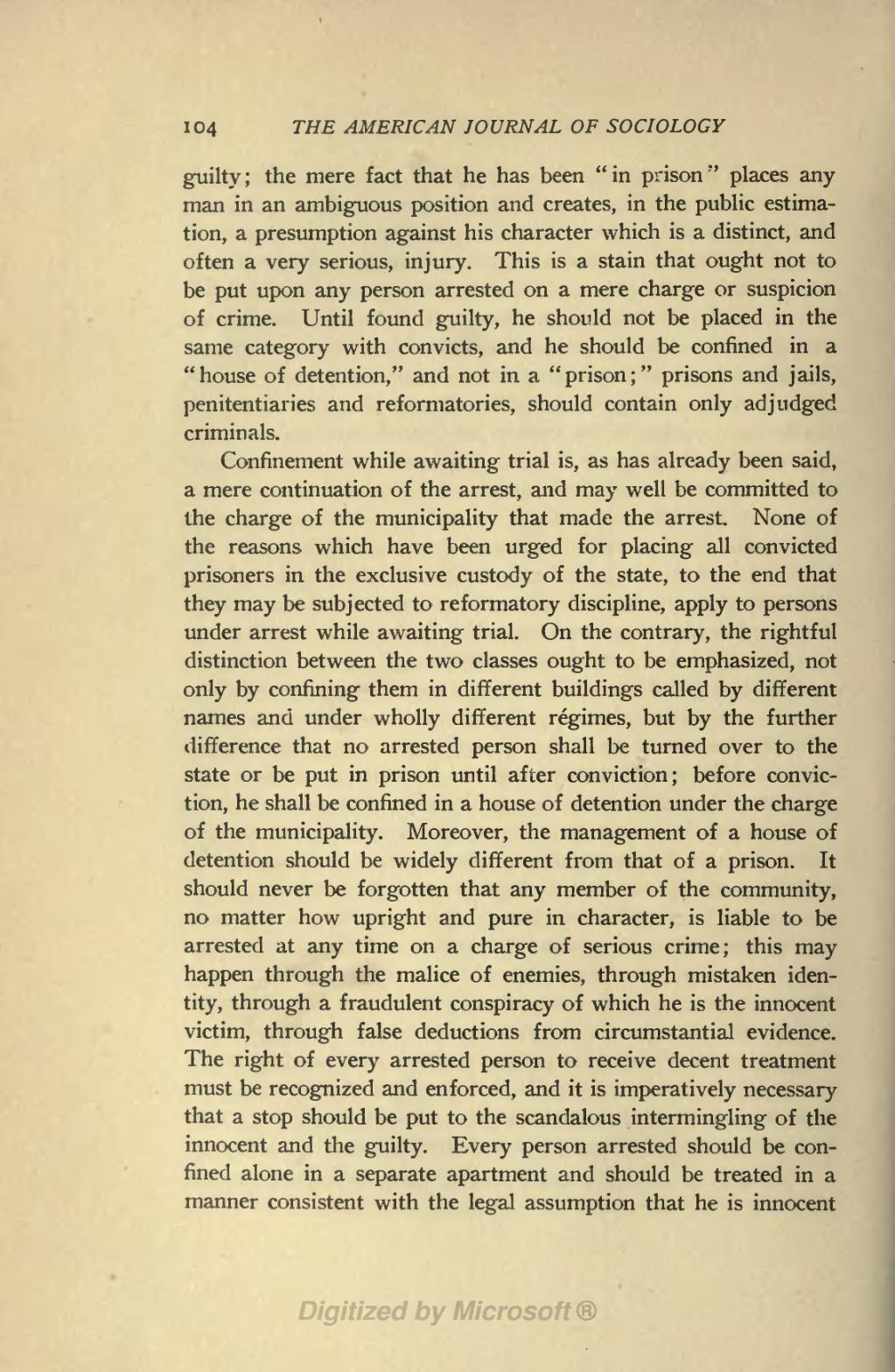104 THE AMERICAN JOURNAL OF SOCIOLOGY
guilty; the mere fact that he has been "in prison" places any man in an ambiguous position and creates, in the public estima- tion, a presumption against his character which is a distinct, and often a very serious, injury. This is a stain that ought not to be put upon any person arrested on a mere charge or suspicion of crime. Until found guilty, he should not be placed in the same category with convicts, and he should be confined in a "house of detention," and not in a "prison;" prisons and jails, penitentiaries and reformatories, should contain only adjudged criminals.
Confinement while awaiting trial is, as has already been said, a mere continuation of the arrest, and may well be committed to the charge of the municipality that made the arrest. None of the reasons which have been urged for placing all convicted prisoners in the exclusive custody of the state, to the end that they may be subjected to reformatory discipline, apply to persons under arrest while awaiting trial. On the contrary, the rightful distinction between the two classes ought to be emphasized, not only by confining them in different buildings called by different names and under wholly different regimes, but by the further difference that no arrested person shall be turned over to the state or be put in prison until after conviction; before convic- tion, he shall be confined in a house of detention under the charge of the municipality. Moreover, the management of a house of detention should be widely different from that of a prison. It should never be forgotten that any member of the community, no matter how upright and pure in character, is liable to be arrested at any time on a charge of serious crime; this may happen through the malice of enemies, through mistaken iden- tity, through a fraudulent conspiracy of which he is the innocent victim, through false deductions from circumstantial evidence. The right of every arrested person to receive decent treatment must be recognized and enforced, and it is imperatively necessary that a stop should be put to the scandalous intermingling of the innocent and the guilty. Every person arrested should be con- fined alone in a separate apartment and should be treated in a manner consistent with the legal assumption that he is innocent
